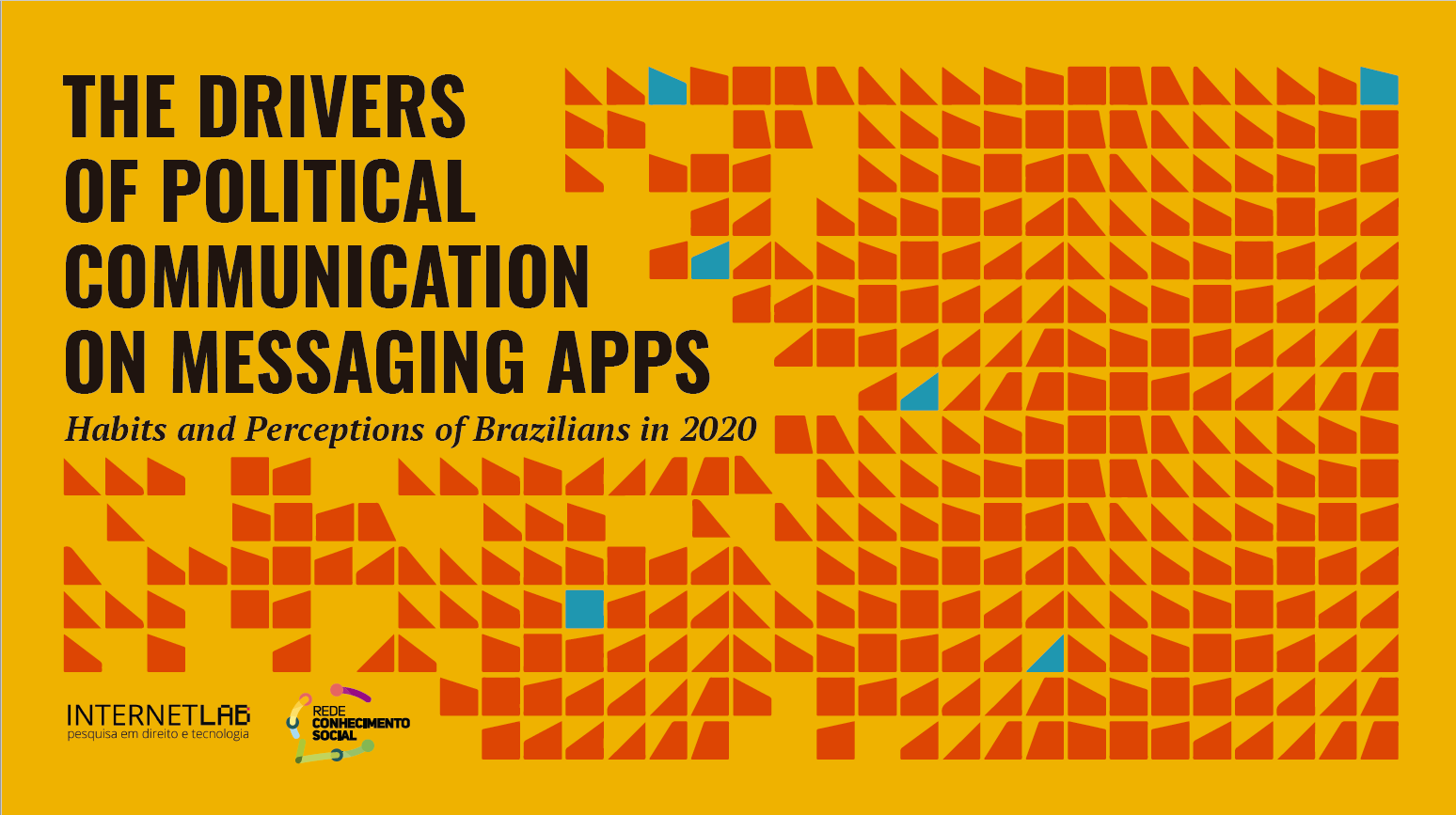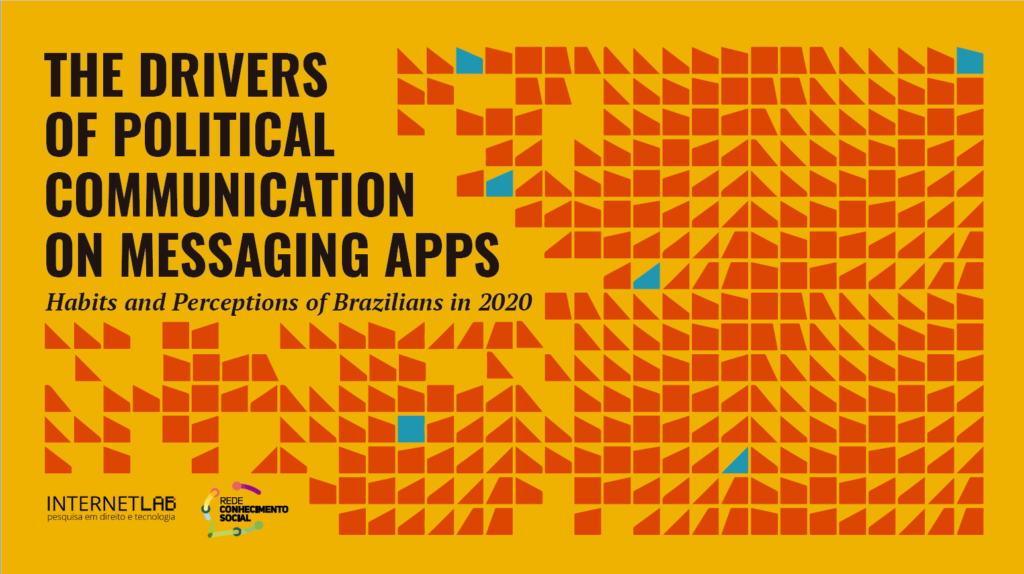
Research reveals that personal habits and chat groups’ internal rules drive political communication on WhatsApp
Study about Brazilians’ behaviors and perceptions on the messaging app in 2020 is released by InternetLab in collaboration with Rede Conhecimento Social.
Since the 2018 elections, WhatsApp has gained centrality on debates about political communication on the internet. In that year, reports of bulk messaging have marked the elections, and messaging apps became the central concern regarding the use of digital tools by electoral campaigns. Many studies have investigated the strategies to influence the political debate in these spaces, finding signs of coordination, articulation and automation in open chat groups on the platform. The relation of the user with those strategies and this space, however, is still a field to be explored.
The research published on August 8 reveals that the year of 2018 was a turning point for users on WhatsApp: of the 3113 users interviewed in the period of December 7 to 16, 2020, 71% affirm having somehow changed their behavior on the app since that year’s elections, policing themselves more on what they talk about in WhatsApp groups, while 50% affirm having seen a change in group rules regarding what can be shared. From the split of groups or changes in behavior in order to avoid political arguments, to the emergence of shared rules in different groups, the users’ experiences in that election impacted the way they interact and react on messaging apps.
This movement engendered by the 2018 elections highlights the relevance of individual habits and of each group’s rules to the way political contents circulate on messaging apps. The research carried out by InternetLab in partnership with Rede Conhecimento Social aimed at investigating the behaviors and perceptions of users of messaging apps that are able to shape the dissemination of electoral and political content. By adopting a multi-method approach – that combined discussion groups for collecting qualitative data and a sample survey –, the research aimed at focusing on the user’s perspective, with the goal of shedding light about their role in the political communication dynamics.
Different groups, varied dynamics
In the study, a diverse range of group types was identified – ranging from standard groups of family, friends, and work, to groups of memes, sales, and news –, in which people reproduce the social roles they play outside the apps. According to the collected data, 72% of the users affirmed having avoided talking about politics in family groups to prevent political disagreements. Each of those different groups has its own ethos, with specific rules and autonomous moderation practices. From the neighborhood group, in which party politics contents are forbidden, to the library group, in which silence is the rule, those varied dynamics shape the dissemination of content through the messaging app.
The way in which political and electoral messages circulate on the platform depends both on the habits and rules shared by users and on the tactics and strategies adopted by political actors. The research data indicate that, although there are coordinated strategies to disseminate content or to influence public opinion, they do not seem capable of achieving the mass distribution of political content in a sustained and exclusive manner, colliding with habits and social interaction rules observed by users on the app. In the 2020 elections, although more than 50% of the interviewees have been added by someone to groups about elections or have received links to join them, the number of people that effectively took part in any group with political activities during the elections does not exceed 30%. In the same period, while 88% of them received some kind of electoral message, only 68% actually shared those contents.
The study’s data and analyses are available in the report “Political Communication Vectors in Messaging Applications: Brazilians’ habits and perceptions”, which presents the first results of one of the research tracks of a project to investigate the drivers of electoral content dissemination in Brazil, currently carried out by InternetLab’s Politics and Information area.
The full report is available here.
